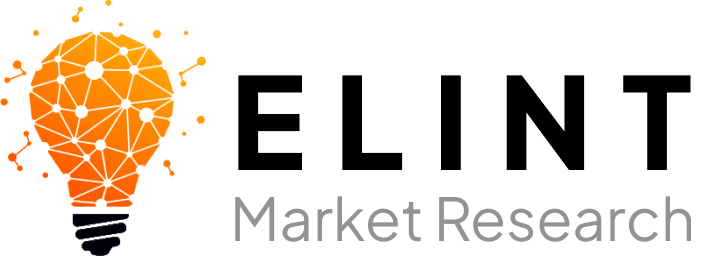DESCRIPTION
Public Relations Procurement Market Size
Global public relations is portrayed as being in a positive zone and continuing to grow in the recently published public relations procurement market research report by ELINT Market Research. The procurement market analysis shows how flexible and rapidly the business is growing, with an incredible $100.39 billion market size and a startling growth rate of 6.6% in 2022 alone. The robustness of the public relations market is demonstrated by the notable surge in demand for strategic communication services from a range of global organizations. As companies realize the importance of managing the complexity of the contemporary business ecosystem, organizational strategy places public relations front and center. It provides essential data and services that help achieve success and sustainability.
The recent formation of new partnerships is evidence of the public relations market’s bright future. Organizations such as Torque Pharmaceuticals and Angel One know the significance of public relations in enhancing their brand image and fostering relationships with stakeholders. It’s wise to increase audience engagement and brand recognition that they are collaborating with Adfactors PR and DENTSU CREATIVE PR, respectively. As businesses become more aware of how crucial strategic PR partnerships are to accomplishing their goals, the industry anticipates more future developments and innovations. ELINT, a leading procurement intelligence company, offers precise and in-depth insights in its latest report.
Market Definition
A strategic communication method called public relations (PR) seeks to build a good rapport between target audiences and organizations. Keeping a good reputation and influencing public opinion involves controlling information from a person or organization to the general public. Under the broad public relations (PR) category, many tasks can be included, including event planning, emergency response, social media participation, and public outreach.
Public Relations Procurement Market Drivers
- Digitization: The last decade has seen public relations campaigns boost the ability of real-time audience engagement with growth achieved through the digital platform.
- Influencer Marketing: The PR profession incorporated this relatively new exercise within its activities by collaborating with leading social influencers for branding.
Public Relations Procurement Market Challenges
- Budget Restrictions: PR agencies need help grabbing a new client base and proving their cost effectiveness as they must prove the return on investment flow at regular intervals.
- Media Fragmentation: Public relations experts have found it hard to effectively locate multiple demographic groups simply because media outlets and types of delivery platforms are continuously increasing.
Public Relations Procurement Market Opportunities
- Purpose-Driven Branding: PR firms are in an excellent place to catch the wave billowing in favor of purpose-driven branding by reflecting that purpose in on brands and businesses through crafting authentic stories that represent commitments to social responsibility and sustainability.
- Tailored Communication: A more tailored response in the course of campaigns raised the levels of interest, involvement, and affiliations with the members of the targeted audience, thus promoting advocacy and fostering the brand.
Public Relations Procurement Market Segmentation
- Industry Verticals: According to industry verticals, the public relations procurement market research report classifies the market into media, banking, healthcare, and technology, among others.
- Company Size: As per company size, the public relations procurement intelligence market research report divides the market into large corporations and small and mid-sized businesses.
- PR Services: Based on service offerings, the public relations market is segmented into media relations, crisis management, and content creation.
Regional Outlook of the Public Relations Procurement Market
Most industries have excelled within the public relations market, representing maturity to allow growth and innovation. From technology and banking to entertainment and healthcare, industries are taking flight as the backbone to excellence in public relations in North America. On the other hand, highly developed economies and diversified cultures provide rich opportunities for PR professionals in Western Europe to foray into new markets and ideas. Thus, countries such as Singapore, Australia, Japan, Thailand, and many more contribute significantly to the global PR scenario since these countries realize the importance of public relations in forming public opinion.
Some out-of-the-box opportunities expected for the public relations specialist will include the moderate maturity level markets such as Eastern Europe, China, India, Malaysia or the Philippines. The public relations market growth drivers include the increasing middle class, rapid urbanization, and internet usage. There is an excellent landscape for the public relations market in Eastern Europe, which demands to fulfill fast-changing consumer preferences and contemporary aspirations. Similarly, emerging giants like China and India are about to enable PR professionals with their rapidly growing and dynamic economies.
Cost Component in the Public Relations Procurement Market
Planning and resource allocation in the public relations market requires understanding the cost components. Payroll expenses stand out, accounting for 60% of the total expenditure. PR specialists who manage client relations, campaign execution, and the development of strategic initiatives are compensated, along with benefits and other associated costs. Payroll expenses are a helpful instrument for illustrating the need for qualified personnel in the PR sector and the value of experience and knowledge in attaining favorable PR results.
Sourcing Models in the Public Relations Procurement Market
Selective Outsourcing and the Unbundling Approach are two widely used sourcing strategies in the PR industry. Selective outsourcing is keeping internal control over essential operations while assigning specific public relations responsibilities to outside organizations or experts. On the other hand, the Unbundling Approach separates PR services into parts so that customers can select and pay for the precise services they genuinely desire.
Pricing Outlook in the Public Relations Procurement Market
Several key cost factors influence pricing projections in the PR industry. The costs incurred by third parties, such as vendor services and advertising placements, are crucial when developing pricing strategies. Since this highlights the importance of experience and business sense, the cost of hiring PR specialists with the requisite background also affects pricing. Pricing is also affected by back-office costs associated with technology, administrative work, and overhead.
Contract Period in the Public Relations Procurement Market
In Public Relations, contracts are formulated for one or two years. This provision eventually accords a high degree of flexibility, allowing agencies and clients to tailor them according to their financial positions, project necessities, and general strategies. Short-term contracts work because they are flexible. The shorter contracts enable a client to give their public relations services a trial for a period without necessarily having to sign an extended agreement. In other words, longer contracts signal continuity and stability to the business relationship, engendering more strategic cooperation between client and agency.
Engagement Strategies in the Public Relations Procurement Market
The final bottom line for public relations is mastering engagement methods in establishing long-term client relationships. Key strategies are developed to develop need levels and an appropriate level of offering that reflects on the client’s need and market complexity. The need to update on progress, problem-solving approaches, the allocation of strategic planning sessions, and collaboration are critical pointers in engagement strategies.
Pricing Models in the Public Relations Procurement Market
A retainer model is one in which customers pay a predetermined amount for continuous assistance and regularity. The hourly-based approach offers clients flexibility and billing transparency because pricing is based on the number of hours completed. The project-based approach allows clients to pay for outcomes rather than time since it links payments to particular deliverables or campaigns. The Hybrid Model provides specialized solutions that cater to each customer’s needs by combining multiple pricing systems’ components.
Negotiation Factors in the Public Relations Procurement Market
Several things are considered when having talks in the field of public relations. Factors such as task scope, deliverables, and financial and time constraints are assessed during the contracts. Successful negotiations need to be aware of the client’s objectives, the state of the market, and industry standards to produce mutually beneficial agreements. Agencies can build long-lasting partnerships with their clients by helping them earn their trust and respect by setting clear goals and promoting open communication.
Leading Players in the Public Relations Procurement Market
The most well-known companies in the sector are Adfactors, Sling and Stone, Avian Media, C+C, Max Borges Agency, Win2Win Communications, Imagem Corporativa, Agency Brazil, N2N Communications, Wellcom, Lansons, SPN Communications, PR Partner, Highwire PR, North Strategic, and C+C. These businesses are highly regarded in the dynamic PR sector for their knowledge, originality, and market presence. They also foster growth and set industry standards.

